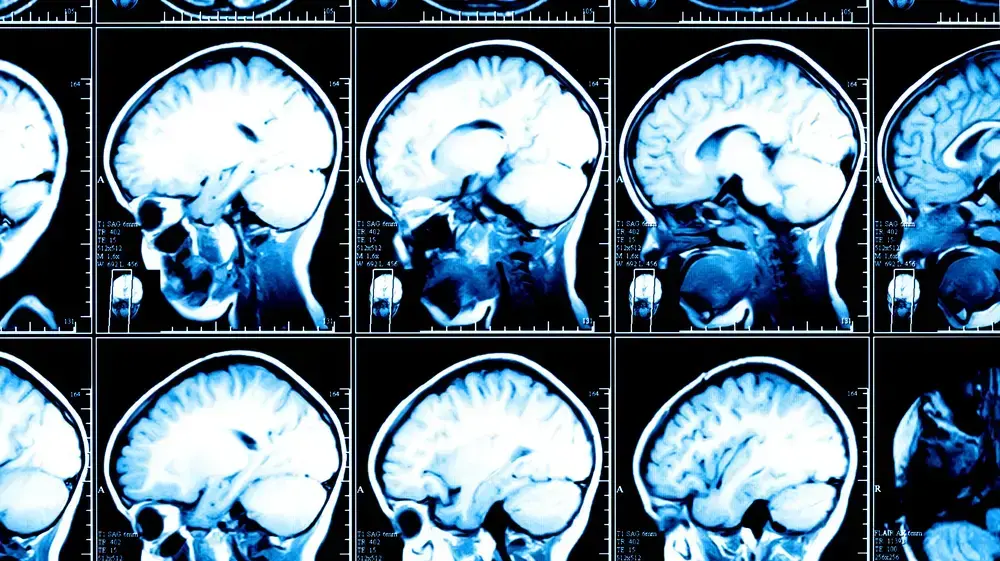Road traffic in Barcelona. Europa Press News (Europa Press via Getty Images)
For two school years, a group of researchers measured the noise pollution caused by traffic in dozens of schools in Barcelona, in the Spanish region of Catalonia.
The results of the study, recently published in
PloS Medicine
, show that traffic noise negatively affects children's cognitive development.
The higher the decibels recorded, the worst the schoolchildren performed in cognitive tests.
The study, led by scientists from Barcelona's ISGlobal research institute, recorded the noise level in 38 schools in Barcelona with sound level meters.
The noise level was measured in decibels (dB), with recordings made on the school street, the school courtyard and inside the classrooms.
This process was carried out two school days a week for a period of 12 months, which encompasses two school years.
At the same as the noise level was being recorded, the researchers conducted cognitive tests at four different stages of the 12-month period.
The tests were carried out on 2,680 schoolchildren between the ages of seven and 10, and sought to measure the performance of two key cognitive aspects: attention and working memory.
“The first refers to the time it takes for children to react to a stimulus,” explains researcher María Foraster,
the lead author of the study.
The second, she says, is akin to RAM memory, a computer's short-term memory where data is temporarily stored.
“When we are going to cross a street we receive a lot of information that we have to process, the cars that are coming, that bicycle, the traffic light, the other pedestrians... Once we have crossed the street, we erase it ,” explains Foraster.
According to the Barcelona study, both attention span and working memory are affected by traffic noise.
The research found that after a year the development of both cognitive abilities was slower in male and female students who attended schools with greater noise pollution due to traffic.
For example, in schools where the outside noise level was 5 dB above average, students' working memory was 11.4% slower than the average.
The same effect was seen in attention span: students exposed to noise levels that were 5 dB louder than average, recorded 4% more inattentiveness than average.
But the most dramatic results were seen in the tests for so-called complex working memory, in which students must handle more information.
In these tests, there was a 23.5% fall against the average at this same noise level.
“This is the first study to assess the impact of noise on children's cognition, measured both in the classroom and outside of school,” says Foraster.
The average noise level recordings were 63.6 dB in the school street, 53.5 dB in the courtyard and 38.6 dB in the classrooms.
The researcher recalls that under the guidelines of the World Health Organization, “traffic noise levels should not exceed an average of 53 dB during the day.”
The work compared the levels of noise pollution in schools with that recorded in homes.
In the latter case, they saw no relationship between noise pollution at home and cognitive development.
“This could be because exposure to noise at school is more harmful because it affects vulnerable windows for concentration and learning processes,” says Foraster.
It must be taken into account that the study used Barcelona's road traffic noise map to estimate the noise level inside each home, not on recordings made inside the residences.
As such, the possibility that traffic noise at home also affects cognition cannot be ruled out.
The students in the study had to undertake a series of cognitive tests. Barcelona Institute for Global Health (ISGlobal)
Perhaps the most striking result of the work is that noise peaks (the passage of a heavy truck, the honking of a horn...) have a greater negative effect than sustained levels of noise, even if they are high.
In the street analysis, both a higher average noise level and a greater fluctuation in the noise levels in front of the school were associated with worse results in all tests.
A greater fluctuation in noise levels inside the classroom was also linked to poor results.
However, children exposed to higher average noise levels in the classroom only performed worse than students in quieter classrooms when it came to attention span, but not working memory.
“This result suggests that noise peaks inside the classroom could be more disruptive for neurodevelopment than the average number of decibels.
This is important, because it reinforces the hypothesis that noise characteristics may have more influence than average levels, when currently policies [against noise pollution] are only based on average decibels,” explains Foraster.
Experts at the Science Media Center in the United Kingdom support the conclusions of the Barcelona study, which they say is well-researched.
Anna Hansell, professor of environmental epidemiology at the British University of Leicester, says that “the results are consistent with evidence on the impact of aircraft noise in schools, showing that high levels affect reading comprehension and hyperactivity.”
Iroise Dumontheil, professor of cognitive neuroscience at the University of London, argues that the “carefully designed study carried out in Barcelona provides convincing evidence of a negative impact of traffic noise on the development of cognition in elementary school children.”
She adds: “Considering that many European children living in large cities are exposed to high levels of noise from road traffic, this study has implications for public policies to reduce noise pollution near schools.”
Jordi Sunyer is a researcher at ISGlobal and coordinator of the BREATHE project, which investigated the impact of air pollution from car emissions on schoolchildren.
This research on noise pollution is part of that project.
“We have not been able to do a detailed analysis of noise until now and what it shows is that, in addition to the effect of air pollution on the neurodevelopment of children, noise from traffic has an additional, independent effect.
The estimates we made then of the impact of traffic were surely underestimated.”
Since the official end of BREATHE in 2016, studies carried out in the Netherlands and the United Kingdom have replicated the results from the Barcelona study, says Sunyer.
In addition, as a result of the research, authorities in several cities such as London and Paris have launched measures to reduce noise near schools.
The lesson to be learned, concludes the scientist, “is that if the administrations are unable to reduce the average levels of noise pollution in the city, they should at least strategically carry out local interventions around schools, as is already done, for example in London.”













